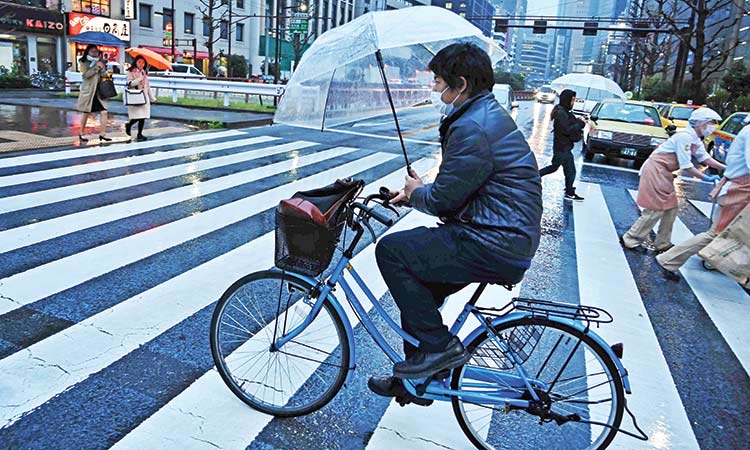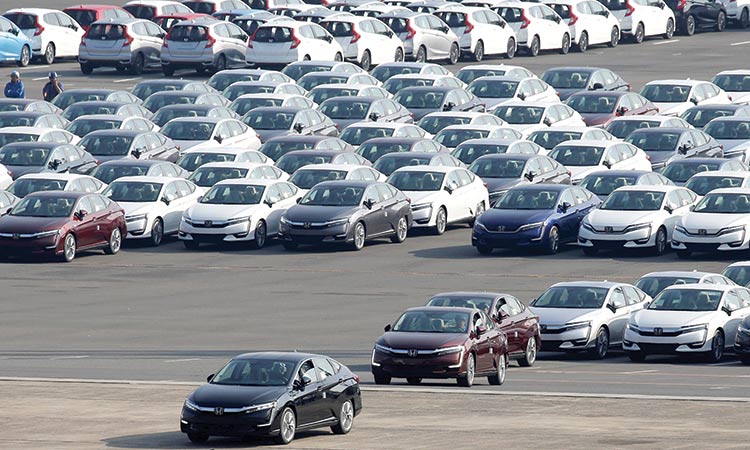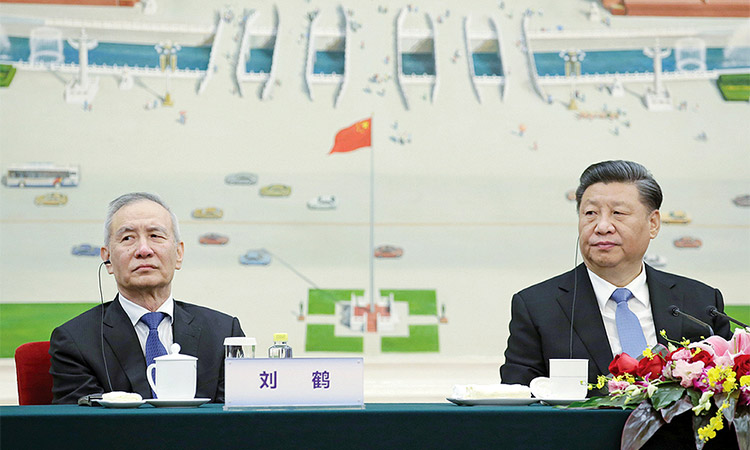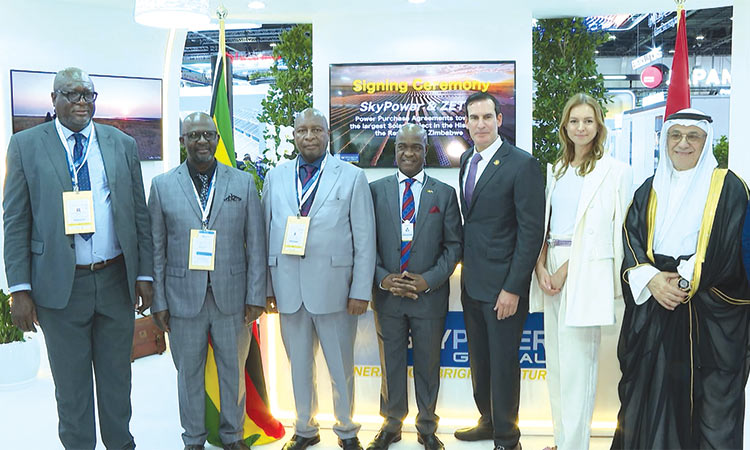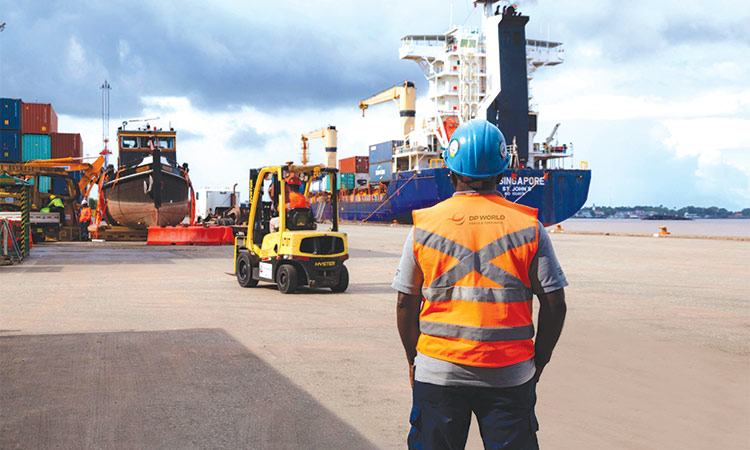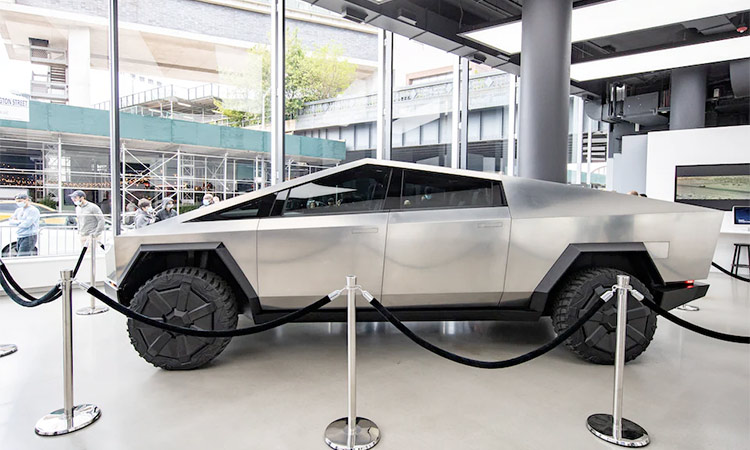US, Japan begin talks amid China deal optimism
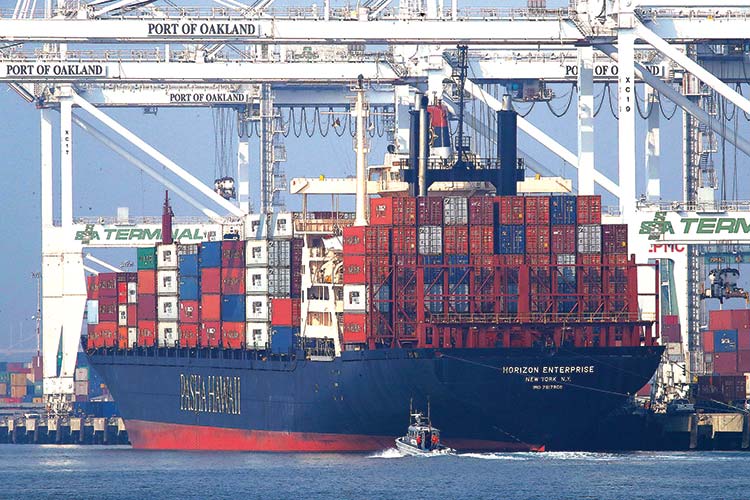
Tokyo aims to focus only on tariff matters, describing the talks as "TAG" or trade agreement on goods.
US Trade Representative Robert Lighthizer and Japan›s Economy Minister Toshimitsu Motegi are set to embark on two days of talks in Washington.
In Tokyo last week, Motegi predicted the crunch talks would be «candid», with the first round on Monday about «making a decision on which areas we will discuss, chiefly in the field of goods».
I will do my best to have thorough discussions so as to produce a good result in line with our national interest,» said Motegi.
Self-styled dealmaker Donald Trump has been playing hardball with traditional US trading partners, using tariffs and threats in an effort to boost US exports and curb Washington›s longstanding trade deficit.
In May, Trump ordered his administration to investigate the possibility of imposing tariffs of up to 25 percent on foreign autos and auto parts, a prospect that alarmed the industry and could have serious repercussions for Japan and Europe.
The US president has frequently complained that Japan has an unfair advantage in bilateral trade and vowed to fix that.
US Agriculture Secretary Sonny Perdue said Thursday he was seeking a «very quick agreement» with Japan on tariff cuts for agricultural goods.
«I hope we can come to a very quick agreement with Japan over maybe some temporary ... provisions and hash out the many other issues that take longer in this area,» Perdue told reporters in Washington, Kyodo News and the business daily Nikkei reported.
However, the US side is likely to run into opposition from Japan on this issue, Jiji Press reported, citing unnamed government sources.
«There›s no way for us to conclude an agricultural deal first,» a senior Japanese official told Jiji.
If Japan does so, it may violate World Trade Organization rules related to free-trade agreements, the officials noted, according to the report.
Tokyo is expected to counter with demands that the United States scrap tariffs on Japanese industrial goods, if Washington urges an early opening of Japanese agricultural markets.
Tokyo aims to focus only on tariff matters, describing the talks as «TAG» or trade agreement on goods.
However, Washington trade officials have spelled out 22 specific negotiation areas also including non-tariff barriers in Japan›s auto market and currency.
US Treasury Secretary Steven Mnuchin said Saturday any agreement will include a requirement to refrain from manipulating currencies to gain an advantage in international trade.
Golf buddies Trump and Japanese Prime Minister Shinzo Abe will have plenty of opportunities to talk trade in the coming months.
Abe is visiting the United States later this month and Trump is expected in Japan in May to pay his respects to the country›s new emperor who will take the throne on May 1.
Trump is then expected back in Japan the month after as the western city of Osaka hosts the G20 summit of world leaders on June 28-29.
Meanwhile, China›s economy cooled further in the first quarter, according to an AFP survey of analysts, as Beijing resorted to tried-and-tested measures to combat tepid global demand and a bruising US trade war. The world›s second largest economy expanded by 6.3 percent in the January to March period, the poll of 13 economists found ahead of the official release of gross domestic product figures on Wednesday.
It would mark the slowest pace of quarterly growth for almost three decades.
The figure remains within the range targeted by the government of 6.0 to 6.5 percent for the whole year, down from 6.6 percent in 2018.
To combat the slowdown, Beijing has stepped up support for the economy in recent months, announcing massive tax cuts and other fee reductions to help struggling companies.
Last month Premier Li Keqiang acknowledged «downward pressure» but vowed not to let the economy «slip out of a reasonable range».
Beijing faces a delicate balancing act as it tries to support private businesses in need of credit, without further inflating its debt balloon.
Policymakers have turned the credit taps back on after several years of crushing deleveraging with credit data Friday from China›s central bank showing monetary easing kicking in.
Bank loan growth accelerated to its fastest monthly pace since 2016, said Chang Liu of Capital Economics, noting it usually takes six months for credit growth to translate into greater economic activity.
Reuters
